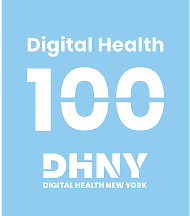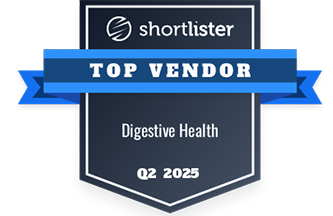
Digestive health is often invisible—but its impact on women at work is far from it. That was the focus of our recent webinar, “Invisible pain, visible costs,” where Cylinder’s Eileen Fallis sat down with Dr. Dena Bravata to unpack how chronic GI symptoms uniquely affect women in the workplace and what employers can do to close care gaps. Here are a few key takeaways from the conversation:
Digestive health is women’s health
Women are significantly more likely to experience chronic GI conditions like IBS (6x more common than in men) and IBD (2x more common). Colorectal cancer is also the third most common cancer diagnosed in women. Yet, these issues are often dismissed or misattributed to stress—especially in younger women—which delays diagnosis and care.
“Many women, especially younger women, dismiss chronic GI symptoms like bloating, nausea, vomiting, diarrhea, constipation, as being more related to stress and anxiety.”
Hormones matter more than most benefit strategies reflect
Hormonal shifts during menstruation, pregnancy, and menopause can worsen GI symptoms. But too often, women deprioritize their own care during these transitions—leading to missed opportunities for early intervention and support. And commonly prescribed medications like hormonal birth control and GLP-1s often come with digestive side effects that go unaddressed.
GI issues don’t stay at home—they show up at work
Whether it’s absenteeism, presenteeism, or just powering through discomfort, GI symptoms can erode performance and engagement. Nearly 3 in 4 people with GI issues say they feel pressured to work through symptoms rather than take time off. And in one large employer survey, 25% of employees requested GI-sensitive accommodations like sitting near a bathroom.
Most benefits strategies still miss the mark
Despite GI conditions being a top-five cost driver, digestive health rarely features in standard benefit offerings. This leaves many women managing symptoms without adequate support, and leads to costly downstream issues like ER visits and disengagement. The gap is especially stark when it comes to integrating digestive, hormonal, and mental health care.
The good news? Effective, inclusive solutions are here
Dr. Bravata highlighted outcomes from recent peer-reviewed studies showing that Cylinder’s approach—virtual, personalized, and evidence-based—delivers real results. In one analysis, 85% of members saw symptom improvement, and 76% reported increased happiness. Notably, these benefits extended across vulnerable groups, including Black and Native American women.
A standout example: One client partnered with Cylinder and saw a 27% drop in ER visits, 17% fewer sick days among employees over 50, and a 5:1 ROI—proving that digestive health support isn’t just compassionate care, it’s smart business strategy.

If you missed the live session, we’ve got you covered.
Watch the recap or download our new guide for HR, benefits, and DEIB leaders to learn how you can start making digestive care part of a modern, inclusive health strategy.







